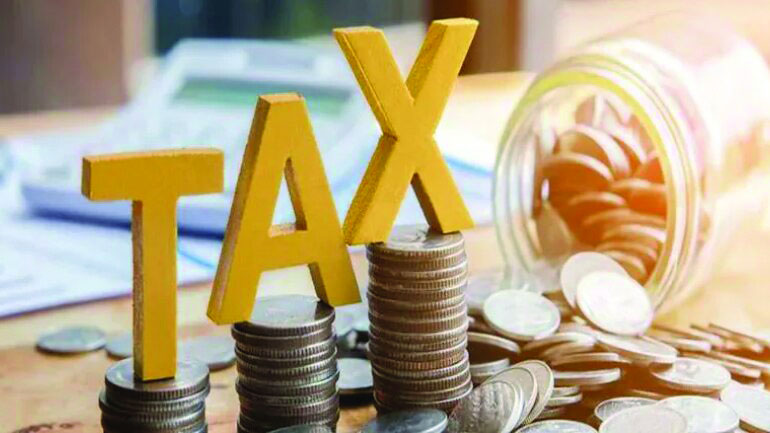Laundered money not coming back even after tax exemption
Mahfuja Mukul: Tax exemptions in the current budget to bring back money laundered abroad have not yielded any results. In the 9 months (July-March) till last March, not a single person took that chance and not a single rupee returned home.
In this situation, the National Board of Revenue (NBR) is reviewing whether the provision of ‘amnesty’ will be continued in the budget of the next financial year 2023-24. This information is known from related sources. Sources said that last March, the NBR had written to the tax zones seeking to know whether any person had brought money into the country from abroad. No response to this letter from any tax zone.
In view of this, NBR thinks that no one has taken this opportunity. As this is a political decision, NBR is waiting for the decision of the higher echelons of the government whether this clause will be continued in the next budget.
According to a report published by the United States-based international organization Global Financial Integrity (GFI) in 2021, $4965 million were smuggled from Bangladesh in the six years from 2009 to 2015. In local currency that is Tk 4 lakh 36 thousand crores.
An average of Tk 73 thousand crore has been smuggled every year. The name of Bangladesh is in the list of top 30 countries in the world for money laundering. Besides, Bangladesh ranks second only to India in money laundering in South Asia.
On the other hand, according to the data of the Swiss Bank, the amount of money deposited by Bangladeshis in various banks of Switzerland (Swiss Bank) in 2021 is871.1 million francs, which in local currency is Tk 8,275 million (95 taka per Swiss franc).
This amount is equal to the paid-up capital of at least 21 private banks. This deposit has increased by about Tk 3 thousand crore compared to the previous year. In 2020 which was Tk 5,343 crores. In this regard, the position of Bangladesh is after India among South Asian countries.
A clause called ‘19F’ was added to the Income Tax Ordinance through the Finance Bill in the current budget. It is said that till June 30, anyone can bring any amount of cash from abroad through banking channels by paying income tax at the rate of 7 percent without penalty.
In this case, no other agency of the government can question the source of the wealth. As per the taxpayer’s wish, the bank will deduct 7 percent tax from the total amount and submit the challan to the government treasury and issue a certificate to the taxpayer. The tax payer has to attach that certificate with the return.
In the post-budget press conference, Finance Minister AHM Mustafa Kamal mentioned the ‘right’ of people to return money smuggled abroad. At the same time, he expressed hope that the money will return to the country.
Roughly speaking, a person in Bangladesh who earns more than Tk 16 lakh a year has to pay income tax at a maximum rate of 25 percent. For example, if a person has an annual income of Tk 50 lakh, he will have to pay income tax of Tk 10.45 lakh. According to this rule, the money earned by not paying tax is considered as undisclosed money or black money. But it is possible to legitimize it by bringing the same amount of money from abroad to the banking channel and paying income tax of Tk 3.5 lakh.
In this regard, the executive director of the private research organization Policy Research Institute (PRI) Ahsan H. Mansoor told, “those who took money (smuggling) abroad with such difficulty did not take it to bring it back.” It is foolish to expect that money will come back from the tax breaks given in the budget. Money comes back only when there is a major transformation in the country. Apart from that, if the smuggled money is brought as remittance, the government is giving two and a half percent incentive, and the money is also becoming legal.
Then why will people legalize money by paying 7 percent tax. He further said that there is no benefit in keeping this opportunity in the next budget. It will be unduly bad name.
The former chief economist of the World Bank Zahid Hossain said, this policy is unethical and discriminatory, honest tax payers have been discouraged, it has been said from all quarters immediately after the budget announcement. No one has taken this opportunity in the last 9 months, this is a common phenomenon. It is a matter of greater concern that taking this opportunity, it should be investigated whether money laundering has increased from the country.
The difference between the dollar price in the informal market and the dollar price in the bank can be seen in the last few months. Who bought the dollar at such a price?
He also said that a person has to pay income tax at the rate of 25 percent on income in Bangladesh. If the same amount of money is brought back from abroad, 7 percent tax has to be paid. Any individual would want to take advantage of such a huge tax gap. Therefore, whether this policy is encouraging money laundering should be considered in the next budget.
Rare Israeli airstrike in Beirut kills Hezbollah commander and more than a dozen others
International Desk: Israel launched a rare airstrike that killed a senior Hezbollah milita…








